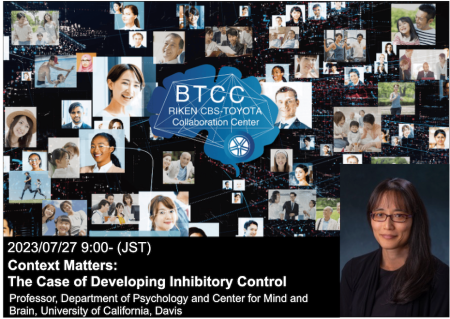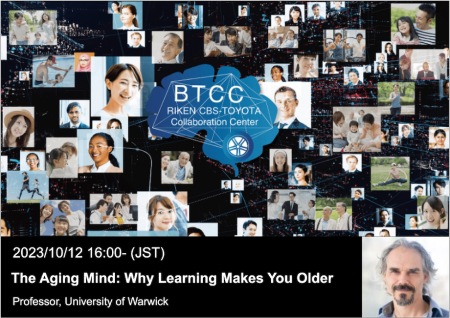インターネットとソーシャルメディアのメンタルヘルスへの影響に関する Andrew Przybylski 教授の講演の資料を公開しました。
タイトル:デジタル時代にインターネットとソーシャルメディアが幸福感とどのように関連しているか
要旨: この講演では、インターネット、モバイルブロードバンド、ソーシャルメディアの採用と使用が、精神衛生と心理的な幸福感の長期的な傾向にどのように関連しているかを理解するための歴史的かつ実証的な視点を提供します。この問題がなぜ重要なのか、そして時間をかけてこの問題がどのように問われてきたかのレビューから始め、私たちがどのようにしてこのアイデアを理解し、検証してきたかをカバーします。講演の中心は、過去二十年間にわたり、技術とウェルネスを検討した三つのグローバルスタディのレビューであり、特に方法論と代表性に特別な重点を置いています。講演は、この種の研究が私たちに示すことができるもの、そして示すことができないもの、さらには複雑なグローバルな現象を単純化する危険性についての反省で締めくくります。将来の研究の道、今後の大きな課題、透明性があり、再現可能で、多様性のある研究の価値が探求されます。詳しい情報はこちら
https://akaishidecisionscience.yolasite.com/Andrew-Przybylski.phpVideo
https://www.dropbox.com/scl/fi/yt3dx1t3e73t180ixm73m/cut02.mp4?rlkey=08y7x8r0lj5g7fhxeszm8cnwr&st=3fdrjz9k&raw=1Slide
https://docs.google.com/presentation/u/0/?authuser=0&usp=slides_webRelevant studies
- Study 1: Global Internet Connectivity (Clinical Psychological Science, 2023) - Global well-being and mental health in the Internet Age
- Study 2: Facebook Adoption in 72 Countries (Royal Society Open Science, 2023) - Estimating the association between Facebook adoption and well-being in 72 countries
- Study 3: Multiverse Analysis of Internet Use and Well-being (Technology Mind and Behaviour, in press) - A multiverse analysis of the associations between internet use and well-being
4/10の午前10時よりAndrew Przybylski 教授に講演を行なって頂きます: デジタル時代にインターネットとソーシャルメディアが幸福感とどのように関連しているか
タイトル:デジタル時代にインターネットとソーシャルメディアが幸福感とどのように関連しているか
要旨: この講演では、インターネット、モバイルブロードバンド、ソーシャルメディアの採用と使用が、精神衛生と心理的な幸福感の長期的な傾向にどのように関連しているかを理解するための歴史的かつ実証的な視点を提供します。この問題がなぜ重要なのか、そして時間をかけてこの問題がどのように問われてきたかのレビューから始め、私たちがどのようにしてこのアイデアを理解し、検証してきたかをカバーします。講演の中心は、過去二十年間にわたり、技術とウェルネスを検討した三つのグローバルスタディのレビューであり、特に方法論と代表性に特別な重点を置いています。講演は、この種の研究が私たちに示すことができるもの、そして示すことができないもの、さらには複雑なグローバルな現象を単純化する危険性についての反省で締めくくります。将来の研究の道、今後の大きな課題、透明性があり、再現可能で、多様性のある研究の価値が探求されます。登録はこちらから
https://us02web.zoom.us/webinar/register/WN_3npR_wZEQher6HekzhW2mw
7/27にYuko Munakata氏が特別講演「セルフコントロール(抑制制御)の発達における文脈の重要性(Context Matters: The Case of Developing Inhibitory Control ) 」を行います。
Context Matters: The Case of Developing Inhibitory Control
The development of inhibitory control over our thoughts, actions, and emotions is essential in life. Decades of research have illuminated the cognitive and neural processes that lead to remarkably low levels of inhibitory control in children and to increases in inhibitory control with development. However, targeted intervention efforts have shown limited success. I will present an alternative framework that emphasizes the temporal and social context in which inhibitory control emerges. This framework integrates multiple lines of research and provides a novel perspective on why children may struggle with inhibitory control, why childhood inhibitory control predicts important life outcomes, and how to effectively support the engagement and development of inhibitory control.セルフコントロール(抑制制御)の発達における文脈の重要性
私たちの思考、行動、感情をコントロールする力、つまり自己制御力の育成は生活にとって重要です。長年にわたる研究により、子供が非常に低い自己制御力を持つ原因や、自己制御力がどのようにして成長するのかについての認知的、神経的過程が明らかになってきました。しかし、特定の介入努力は限定的な成功に留まっています。ここでは、自己制御力が育つ時間と社会的環境の重要性を強調する新たな枠組みを提案します。この枠組みは、多方面の研究を統合し、子供が自己制御に苦しむ理由、子供時代の自己制御力が重要な人生の結果を予測する理由、そして自己制御の発展と参加をどのように効果的に支援するかについて新しい視点を提供します。
登録リンクはこちらから
https://us02web.zoom.us/webinar/register/WN_e3AkUTo2S_2c4pxAzYupzA

10/12にThomas Hills氏が特別講演「エージングマインド: 学習があなたを年老いさせる理由(The Aging Mind: Why Learning Makes You Older) 」を行います。
The Aging Mind: Why Learning Makes You Older
エージングマインド: 学習があなたを年老いさせる理由
登録リンクはこちらから
https://us02web.zoom.us/webinar/register/WN_enu8juBcT8S-7TZavIrk0w#/registration
4/5にLusha Zhu氏が特別講演「相互接続された世界における構造と影響力(Structure and influence in an interconnected world)」を行いました。
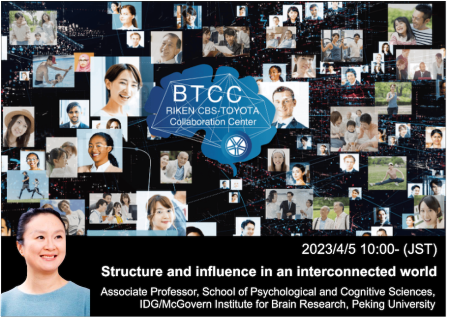
3/23にXiaosi Gu氏が特別講演「社会神経科学の視点から見る計算論的精神医学(Computational Psychiatry Through The Lens of Social Neuroscience)」を行いました。
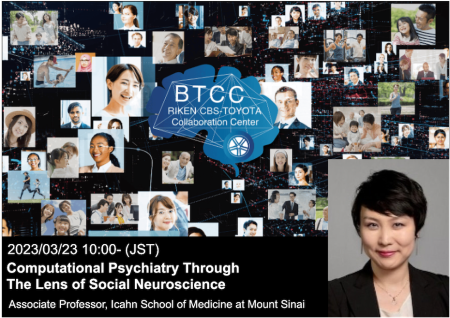
1/18にTali Sharot氏が特別講演「信念の形成過程(How People form beliefs)」を行いました。
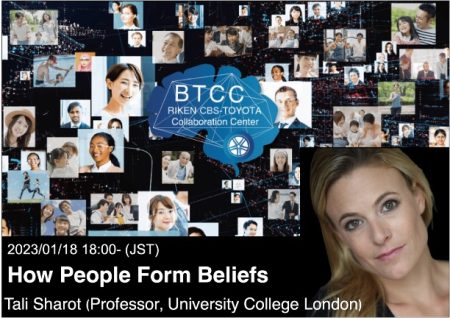
We published the article of loneliness and social rigidity in Scientific Reports!
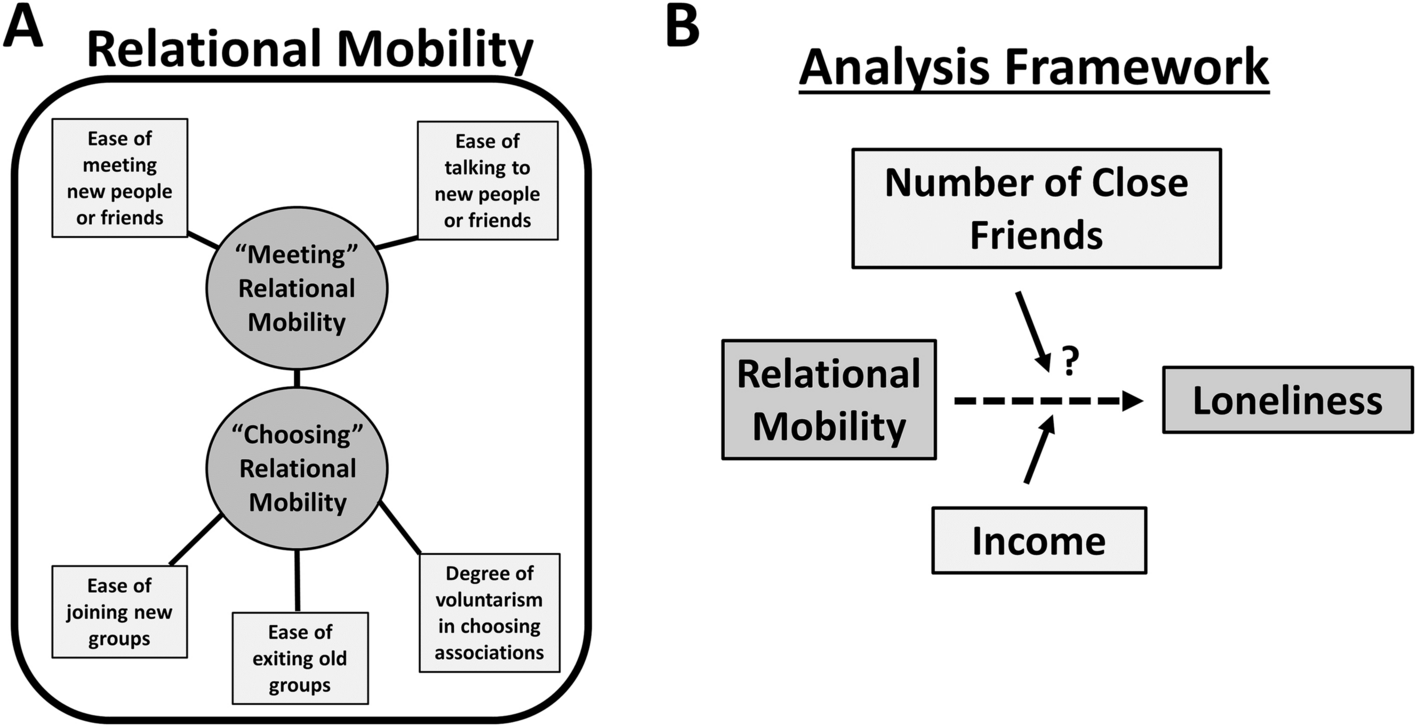
Badman, R. P., Nordström, R., Ueda, M., & Akaishi, R. (2022). Perceptions of social rigidity predict loneliness across the Japanese population. Scientific Reports, 12(1), 1-14.
Loneliness is associated with mental and physical health problems and elevated suicide risk, and is increasingly widespread in modern societies. However, identifying the primary factors underlying loneliness remains a major public health challenge. Historically, loneliness was thought to result from a lack of high-quality social connections, but broader cultural factors (e.g. social norms) are increasingly recognized to also influence loneliness. Here, we used a large-scale survey (N = 4977) to assess to what degree the loneliness epidemic in Japan is associated with traditional measures of social isolation (number of close friends), cultural factors (perceptions of social rigidity, as measured by relational mobility), and socioeconomic factors (e.g. income). We confirmed that a lack of close friends is a dominant factor underlying loneliness in Japan. We also found that perceptions of the social rigidity in one’s environment was a major correlate of loneliness. Subjects who perceived lower levels of rigidity in their social environments felt significantly less lonely than those who perceived higher levels of social rigidity, though the association was weak in low income males. Thus, Japanese society and other high social rigidity cultures may need to reflect on the possibility that inflexible traditional norms of socialization are exacerbating loneliness.
孤独感と社会の硬直性の関係に関する論文が発表されました。
https://www.nature.com/articles/s41598-022-20561-5
日本での孤独感を理解するためには日本の文化や社会構造にとって特有の要素も加味して考える必要がある。出版された論文では関係流動性という、個人が自由に所属するグループを移動したりその選択を行う自由や、今まで知らなかった人々と新しく出会う機会の多さなどを示す指標が孤独感にとって重要であることを示した。この社会の柔軟性・硬直性を示す要素は、従来言われていた親しい関係の多寡と独立して人間の孤独感に影響を与える事が分かった。また経済的な豊かさなどの指標を加えてもこの関係流動性の要素が孤独感に独立の影響を持つことも分かった。この様な知見は応用的な価値を持ち、孤独対策など政策のデザインに寄与するものである。更に人間自体を科学的に理解する上で社会的・文化的な構造に関する要素を考慮する重要性を示している。
Badman, R. P., Nordström, R., Ueda, M., & Akaishi, R. (2022). Perceptions of social rigidity predict loneliness across the Japanese population. Scientific Reports, 12(1), 1-14.
7/6にBTCCの公開シンポジウム を開催致します。 『心・からだ・社会からの見る・創る Well-being』

BTCCはトヨタ自動車と理化学研究所脳科学センターの4期14年に亘る共同研究の連携センターとして、人間の脳科学研究と社会への橋渡し的な研究に従事してきました。今回は、これまでの研究を総括し、新しい時代の脳科学と社会との関係を構想するために、心と身体と社会というキーワードを中心にWell-beingを創り出すための見える化と、理解のための研究・技術、またこれらの知見を幸せを増やすためのアクションに繋げる実用的な方法論について議論いたします。
BTCC公開シンポジウム
心・からだ・社会からの見る・創る Well-being
7月6日 09:00〜
基調講演
渡邊淳司氏
触れ合えない時代のウェルビーイングテクノロジー
矢野和男氏
予測不能の時代を生きる「オプティミズム」が人と社会を変える
奥山真司氏
人間は心が原動力
村田藍子氏
人から人へと無意識に伝わり変化する感情
【プログラム】
(午前の部)
9:00-9:10 開催のご挨拶 國吉康夫BTCCセンター長
吉原良浩 理研CBS副センター長
9:10-9:50 ① 招待基調講演 渡邊淳司氏 NTTコミュニケーション科学基礎研究所 上席特別研究員
『触れ合えない時代のウェルビーイングテクノロジー』
10:00-10:40 ② 招待基調講演 矢野和男氏 ハピネスプラネットCEO/日立製作所フェロー
『予測不能の時代を生きる「オプティミズム」が人と社会を変える』
10:40-11:20 ③ 招待基調講演 奥山真司氏 トヨタ自動車(株)産業医(精神科医)
『人間は心が原動力』
11:30-12:00 パネルディスカッション
12:00-12:30 ランチョンセミナー 特別招待講演
村田藍子氏 NTTコミュニケーション科学基礎研究所 研究主任
『人から人へと無意識に伝わり変化する感情』
(午後の部)BTCC研究紹介
13:30-14:05 北城圭一 脳リズム情報処理連携ユニットリーダー
『脳のリズムネットワークのダイナミクスと心の個人特性』
14:05-14:40 下田真吾 知能行動制御連携ユニットリーダー
『人に宿る無意識の知性のWell-beingへの貢献』
14:50-15:25 赤石れい 社会価値意思決定連携ユニットリーダー
『社会と人間の繋がりから見る・創るWell-being』
15:25-15:50 パネルディスカッション
15:50-16:00
全体の総括 國吉康夫BTCCセンター長
閉会のご挨拶 古賀伸彦 トヨタ自動車(株) 未来創生センター長
登録リンク
https://us02web.zoom.us/webinar/register/WN_k1f2VWzET--HyR5BwKXDVg?t=1623381736332
#innovation #wellbeing



